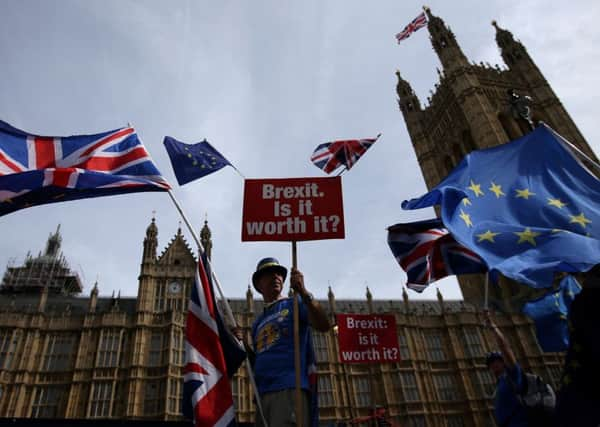Tommy Sheppard: Case for more devolution in event of no-deal Brexit


Everyone knows something bad is going to happen. Just not what exactly. Like waiting for the ghoul to reveal itself in a horror movie.
And as the dread unfolds the discussion about whether there should be another Brexit referendum will intensify.
Advertisement
Hide AdAdvertisement
Hide AdIn a democracy people have the right to change their minds. A vote taken on 23 June 2016 – or 18 September 2014 for that matter – doesn’t bind people forever if they don’t want it to. On the other hand, you can’t keep voting on a proposition until you get the result you want.


So, to my mind, there needs to be very clear reasons to justify a second vote. Three conditions need to be satisfied.
First, the basis on which the original decision was made needs to have changed, either because circumstances have changed, or because the information was simply wrong in the first place.
Second, there needs to be a demonstrable and significant change of heart by the electorate. Enough people need to have changed their minds to suggest there would be a different outcome if the question were put again.
Advertisement
Hide AdAdvertisement
Hide AdThird, the legislature charged with implementing the decision of the referendum needs to be unwilling or incapable of doing so.
It looks as if two of these three conditions are met. The information on which a majority of people in England and Wales based their decision to leave the European Union was flawed in ways too numerous to mention. Multiple polls indicate that about ten per ent or more of the population have changed their minds. There seems little doubt that a new vote tomorrow would have a majority to remain.
So that leaves the third condition – parliament. Theresa May will come back from Brussels at some point in the autumn clutching a piece of paper. She will claim it’s the best deal ever. Surprisingly good. Better than anyone could have imagined, better than Chequers. It’ll be nonsense of course, but that won’t stop her trying.
It is almost impossible to see how the prime minister could get a parliamentary majority for anything she proposes. The hard right of her party will abstain or vote against any plan the EU supports, and the Ken Clarkes of this world will be half-hearted in their support.
Advertisement
Hide AdAdvertisement
Hide AdIf the plan is defeated, the anti-Europeans will claim we should crash out of the EU without any deal at all. But that horror script will mobilise a majority to vote against any no deal scenario. Nor will Labour or Tory MPs vote simply to remain and end the journey begun at the referendum.
So, there it might be. No majority for anything. Stasis. Gridlock. In such circumstances going back to the people may seem like the only way to move a process forward. After all, they started it. It’s only fair they should get to finish it.
But if that happens the question for Scotland, where support for staying in the EU is now running at nearly 70 per cent, is making sure our views and interests are respected. A repeat of the situation where Scotland votes convincingly to stay in the EU but faces being dragged out by our larger neighbour is no progress at all. So, if we get to it, we need to demand that Scotland can determine its own relationship with mainland Europe should the rest of the UK vote for isolation.
The easiest way to do that would be by becoming an independent country. But there might also be a case for a further raft of devolution that would give the Scottish parliament the necessary authority to sign an agreement with the EU.
Tommy Sheppard is the SNP MP for Edinburgh East